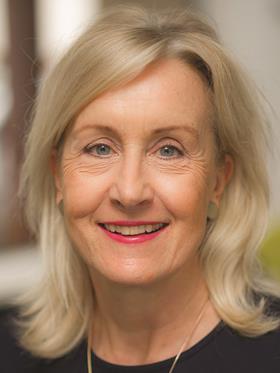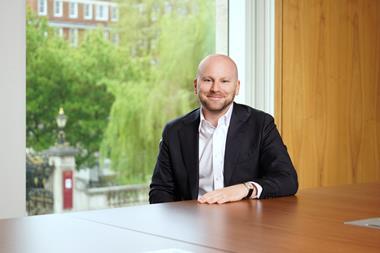It is hardly surprising that the recent publication of salaries paid to BBC employees prompted such outrage.

Such a stark pay gap between male and female employees sits uncomfortably with the BBC’s stated ambition “to reflect and represent today’s UK in all our content and services”.
It is understandable that viewers might feel any bias within the organisation, of which the pay gap is just a symptom, could manifest in its programming. Which makes me wonder how the public might react if they were made aware of the level of diversity in the property industry.
For a long time I have been uneasy about the paradox between the narrow demographic that dominates our industry and the diversity of the towns, cities and communities we are working in.
I fear that any unconscious bias that exists in our workforce could manifest in the places we create. The property industry, like the BBC, needs to better reflect its audience. This is especially important for the retail property sector, which must create places that are exciting, dynamic and accessible to all.
As president of Revo, I am proud to be advocating for greater inclusivity and diversity within our industry, which will help us create places that are more attuned to how people from all walks of life want to spend their time and money.
So what are we doing about it?
![]()
The first challenge is to create greater transparency around our collective approach to diversity. Revo is working to understand how different organisations across the spectrum of retail property and placemaking interpret and approach inclusivity. Once we have done that, we can work towards creating an industry ‘best practice’ that makes us all more accountable.
As a leading membership organisation we can have considerable influence. As such, inclusivity will be an important strand of our exciting programme at Revo Liverpool 2017 on 19-21 September.
But the leading and largest companies in the sector have an important role to play, too, and I am encouraged to hear that some are amending their procurement policies to allow them to work only with suppliers actively involved in diversity initiatives. Creating a commercial imperative for companies to become more inclusive is unquestionably the fastest way to effect change.
Encourage and engage
There is a pressing need for us to encourage people from different demographics into our industry. We are active supporters of the University of Reading’s Pathways to Property, and via Revo’s Educational Trust we have developed our own courses and apprenticeship programmes aimed at opening up our industry to different demographics.
Revo was also one of the first organisations to launch a programme aimed specifically at engaging with young people embarking on a career in retail property. Revo Hub enables young professionals to socialise and network in a more relaxed, familiar setting.
The same principle applies to our partnership with Freehold, which creates a platform for members of the LGBT community to come together and share their experiences.
There is a pressing need to encourage people from different demographics into our industry
In 2017, women remain a minority across the retail property industry, which is astonishing when you consider it is women who account for the majority of retail spend. I have, however, seen the industry become less male-dominated and more sympathetic to the challenges for women who juggle a career and family life.
I am one of many who chooses to work a four-day week, but I worry that in many cases absence from the office due to maternity leave or childcare commitments breeds an unconscious bias in favour of male colleagues. More needs to be done.
The public are right to expect the BBC to reflect their values on inclusivity and diversity. And they would be right to expect the same from us.






























No comments yet